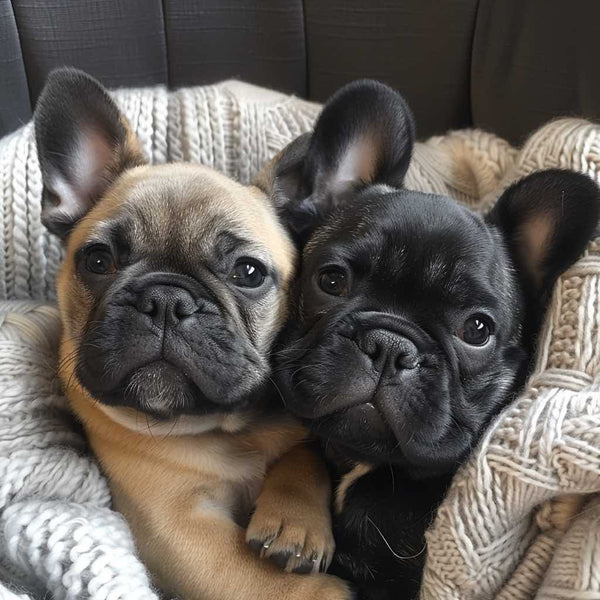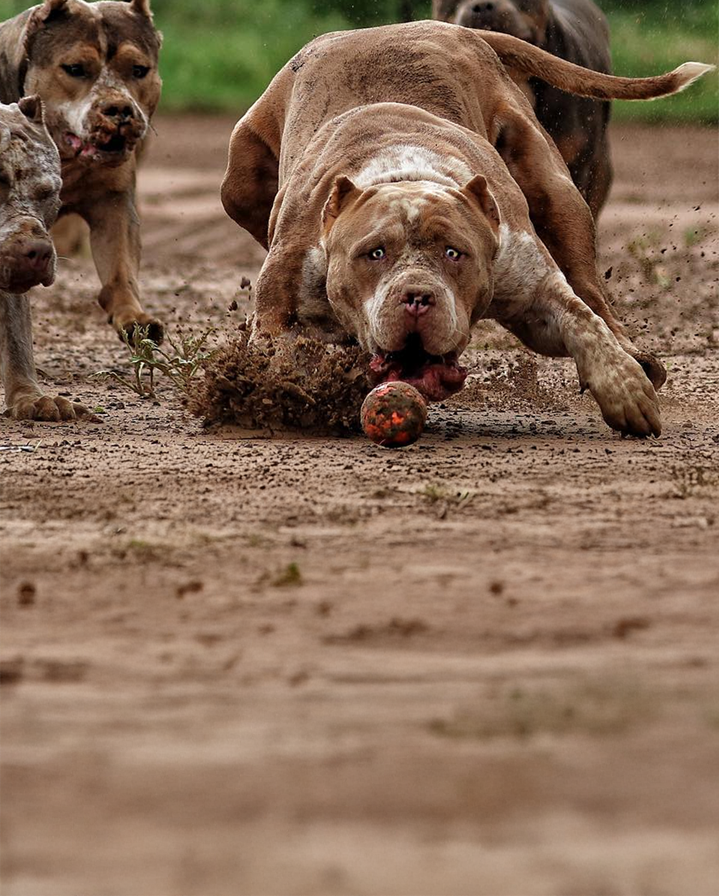How to Socialize a Puppy
When you bring a new puppy home, begin planning a socialization schedule. While this might sound complicated, it's simpler than you think. Spending just a few minutes each day introducing your puppy to the world around them can make an incredible difference in their future development.
The Socialization Journey Begins Before You Bring Your Puppy Home
Did you know that socialization actually starts before you even bring your puppy home? Responsible breeders begin the process as early as 3 weeks of age. They provide gentle handling, expose puppies to safe indoor and outdoor environments, and introduce various sounds and experiences. This early exposure is crucial in shaping your puppy's future personality.

What is Puppy Socialization?
Puppy socialization is the most critical period in your dog's life, setting the foundation for a well-adjusted adult companion. This process introduces your dog to new experiences in a positive, controlled manner. A well-socialized puppy should feel comfortable wherever they go—whether facing large crowds or encountering children on skateboards.
Why is Socialization So Important?
The stakes are higher than you might realize. According to the American Veterinary Society of Animal Behavior, behavioral issues—not infectious diseases—are the number one cause of death for dogs under 3 years old. Proper socialization can quite literally save your dog's life by preventing future behavioral problems.
To a puppy, new environments, people, and experiences can feel overwhelming. Think about visiting a foreign country where everything—from food to language to streets—seems strange. Now imagine that experience for a tiny puppy! Socialization helps your pup navigate the world with confidence and curiosity.
When to Start Socializing Your Puppy
The prime socialization window for puppies is between 3 and 14 weeks of age. It's the period when they are most receptive to new experiences. While most pet owners bring their puppies home around 8 to 9 weeks old, crucial socialization often starts much earlier. Responsible breeders typically begin this process as early as 3 weeks, exposing puppies to gentle handling, a variety of sights and sounds, and controlled interactions.
According to research—Howell TJ, King T, Bennett PC. Puppy parties and beyond: the role of early age socialization practices on adult dog behavior. Vet Med (Auckl). 2015 Apr 29;6:143-153. doi: 10.2147/VMRR.S62081. PMID: 30101101; PMCID: PMC6067676—this early-stage exposure lays the groundwork for healthy behavioral development. Puppies who are introduced to positive experiences during this time are more likely to grow into confident and adaptable adult dogs. A lack of early socialization, on the other hand, can increase the risk of fear-related behaviors later in life.
How to Socialize Your Puppy: Practical Tips
- Make It Positive - The key is to make every new experience enjoyable. Use small, easily digestible treats and lots of praise. Break treats into tiny pieces and reward your puppy generously. Your emotional state matters too—stay calm and positive, as puppies can sense your emotions.
- Take Baby Steps - Don't overwhelm your puppy. Start with small, controlled exposures:
- Begin with family members
- Slowly introduce strangers
- Gradually increase complexity of experiences
- Diverse Experiences - Aim to expose your puppy to:
- Different people (ages, genders, ethnicities)
- Various surfaces (carpet, tile, grass)
- Sounds (sirens, construction noise)
- Environments (garden centers, quiet streets)
- Puppy Classes and Structured Learning - Enroll in puppy classes after initial vaccinations. These provide:
- Basic obedience training
- Controlled social interactions
- Professional guidance
Safety First: Vaccination and Exposure
Always consult your veterinarian about safe socialization practices. Before complete vaccination, consider:
- Carrying your puppy in a stroller
- Avoiding direct ground contact in public areas
- Supervised, controlled interactions
Socialization Checklist
Your puppy should experience:
- 100+ people of different backgrounds
- Various animals (cats, other dogs)
- Different environments
- Various sounds and textures
- Car rides
- Gentle handling
What If Your Puppy Seems Scared?
If your puppy shows fear:
- Never scold or force interactions
- Offer reassurance
- Move away from the stimulus
- Try again later with more positive reinforcement
Beyond Puppyhood
Socialization doesn't stop when your dog grows up. Continue providing new experiences throughout their life to maintain mental stimulation and confidence.
AKC Recognition: Celebrate Your Progress!
Consider working towards the AKC S.T.A.R. Puppy title, which recognizes well-socialized, well-trained puppies. This program tests skills like:
- Allowing handling
- Tolerating a collar
- Basic obedience
Resources
Need more guidance?
Contact the Association of Professional Dog Trainers.
Consult the American Veterinary Society of Animal Behavior.
Speak with your veterinarian
Remember: Socializing your puppy takes time and patience, but the reward is a confident, happy, and well-adjusted lifelong companion.









